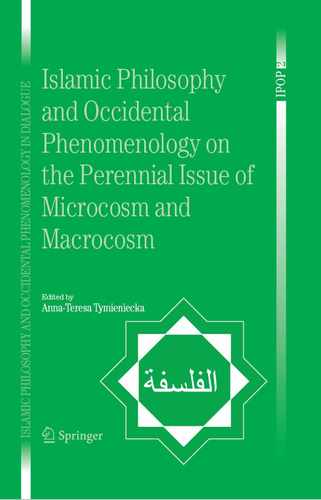

Most ebook files are in PDF format, so you can easily read them using various software such as Foxit Reader or directly on the Google Chrome browser.
Some ebook files are released by publishers in other formats such as .awz, .mobi, .epub, .fb2, etc. You may need to install specific software to read these formats on mobile/PC, such as Calibre.
Please read the tutorial at this link: https://ebookbell.com/faq
We offer FREE conversion to the popular formats you request; however, this may take some time. Therefore, right after payment, please email us, and we will try to provide the service as quickly as possible.
For some exceptional file formats or broken links (if any), please refrain from opening any disputes. Instead, email us first, and we will try to assist within a maximum of 6 hours.
EbookBell Team

4.3
48 reviews
ISBN 10: 904817046X
ISBN 13: 978-9048170463
Author: Anna Teresa Tymieniecka
By proposing the Microcosm and Macrocosm analogy for dialogue between Islamic Philosophy and Occidental Phenomenology, the authors of this volume are reviving the perennial positioning of the human condition in the play of forces within and without the human being. This theme has run from Plato through the Middle Ages, Renaissance and Modernity, and has been ignored by contemporaries. It now acquires a new pertinence and striking significance due to the scientific discoveries into the "infinitely small" in life, on the one hand, and the prodigious technological discoveries of the "infinitely great" on the other. Both open up undreamt-of prospects for the continuing conquest of cosmic forces. The human person – thrown into turmoil by the new approaches to life and needing to acquire new habits of mind, having lost security of all beliefs – desperately seeks a new clarification of the Human Condition within the unity of everything-there-is, of cosmic forces, and of his destiny. The dialogue between Islamic Philosophy and phenomenology of life can show the way.
Papers by: Gholam-Reza A'awani, Mehdi Aminrazavi, Roza Davari Ardakani, Mohammad Azadpur, Gary Backhaus, Marina Banchetti-Robino, William Chittick, Seyed Mostafa Muhaghghegh Damad, Golamhossein Ebrahimi Dinani, Nader El-Bizri, Kathleen Haney, Salahaddin Khalilov, Sayyid Mohammad Khamenei, Mahmoud Khatami, Mieczyslaw Pawel Migon, Nikolay Milkov, Sachiko Murata, Anna-Teresa Tymieniecka, Daniela Verducci.
Chapter1 : Introduction
Chapter 2: Content
Chapter 3: Conclusion
Chapter 4: Appendices
Chapter 5: Glossary
Chapter 6: References
Chapter 7: Index
islamic philosophy and occidental phenomenology in dialogue
what is hume's philosophy
natural philosophy vs philosophy
islamic philosophy history
islamic philosophy
Tags: Anna Teresa Tymieniecka, Islamic Philosophy, Occidental Phenomenology